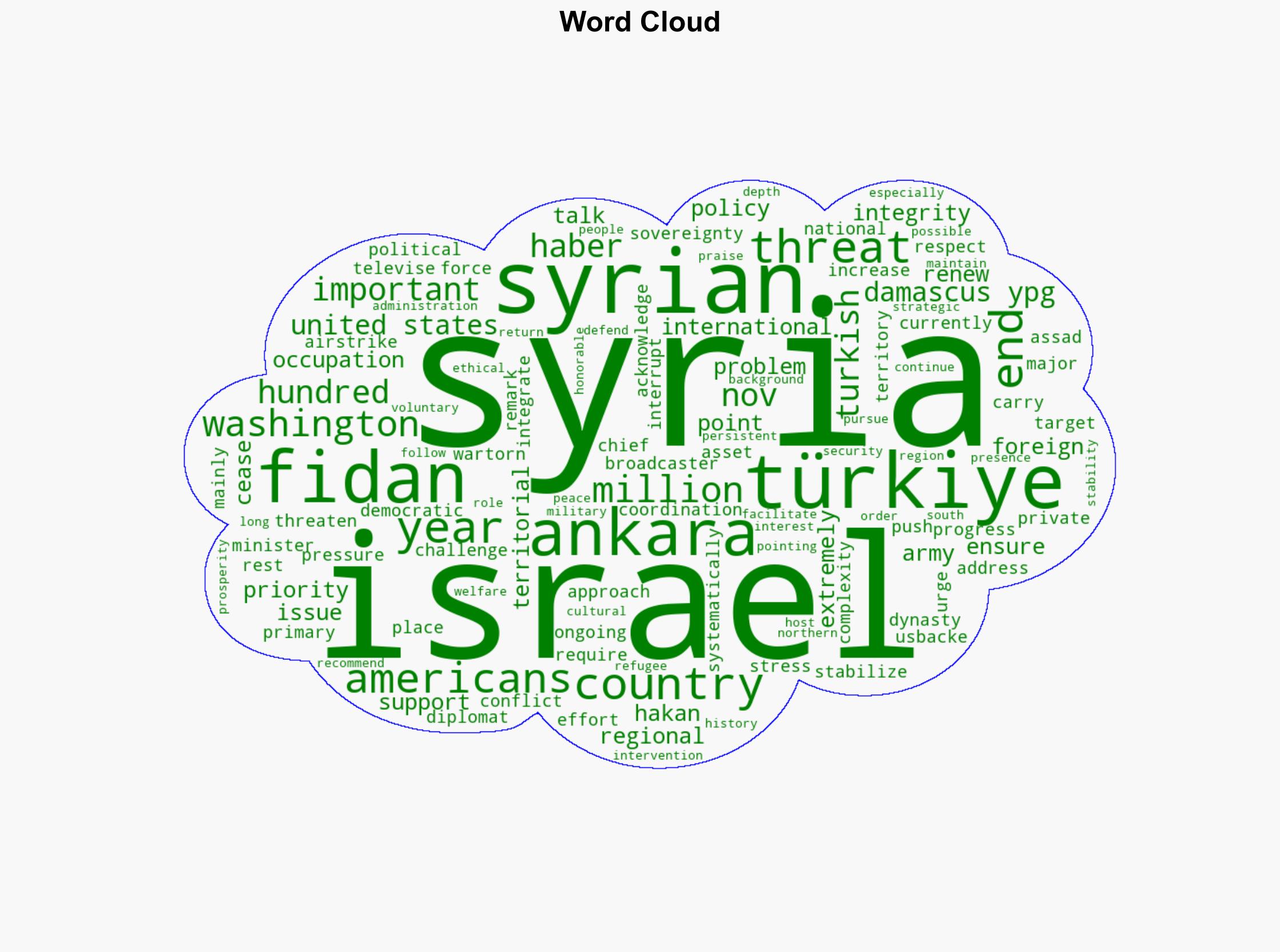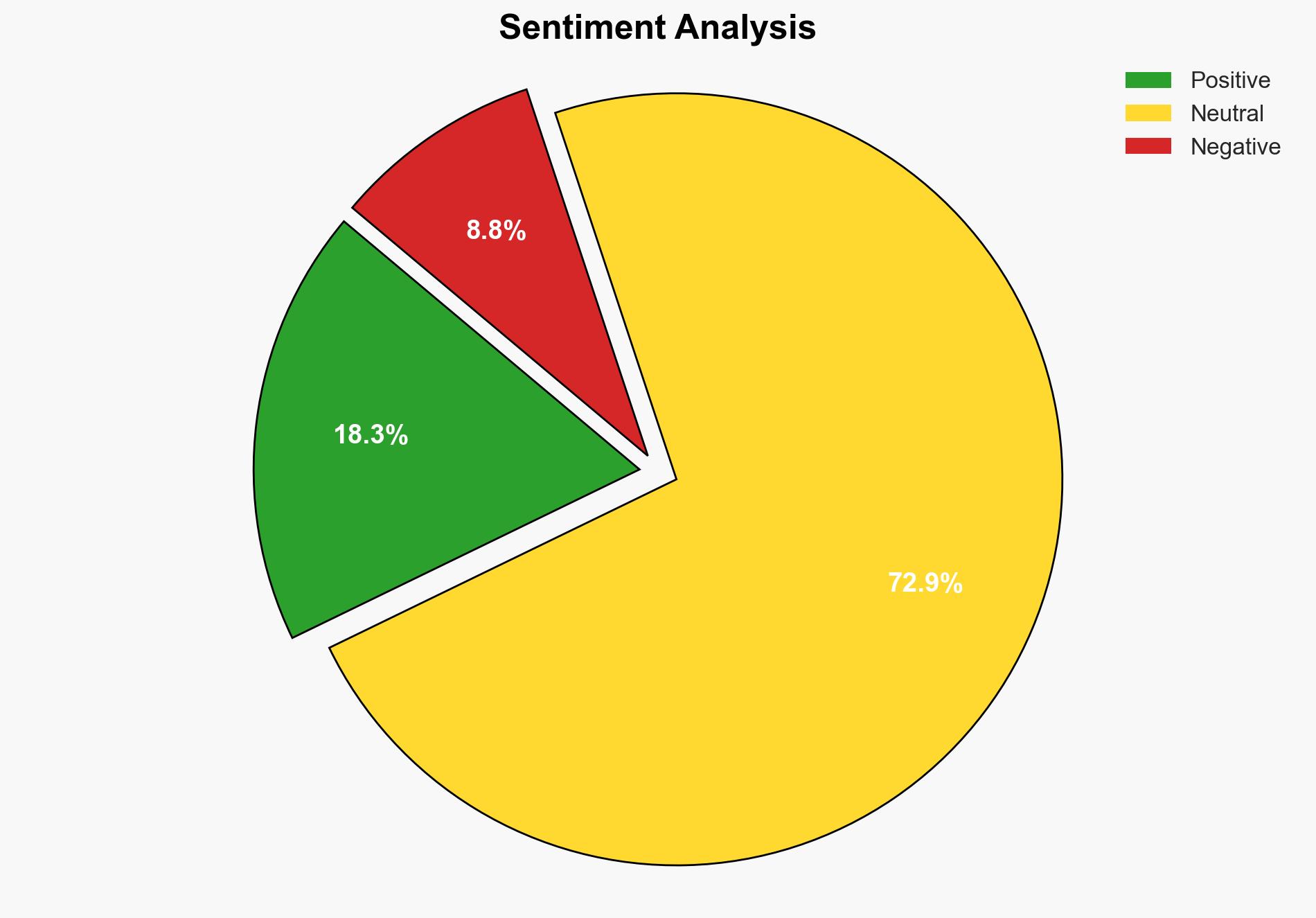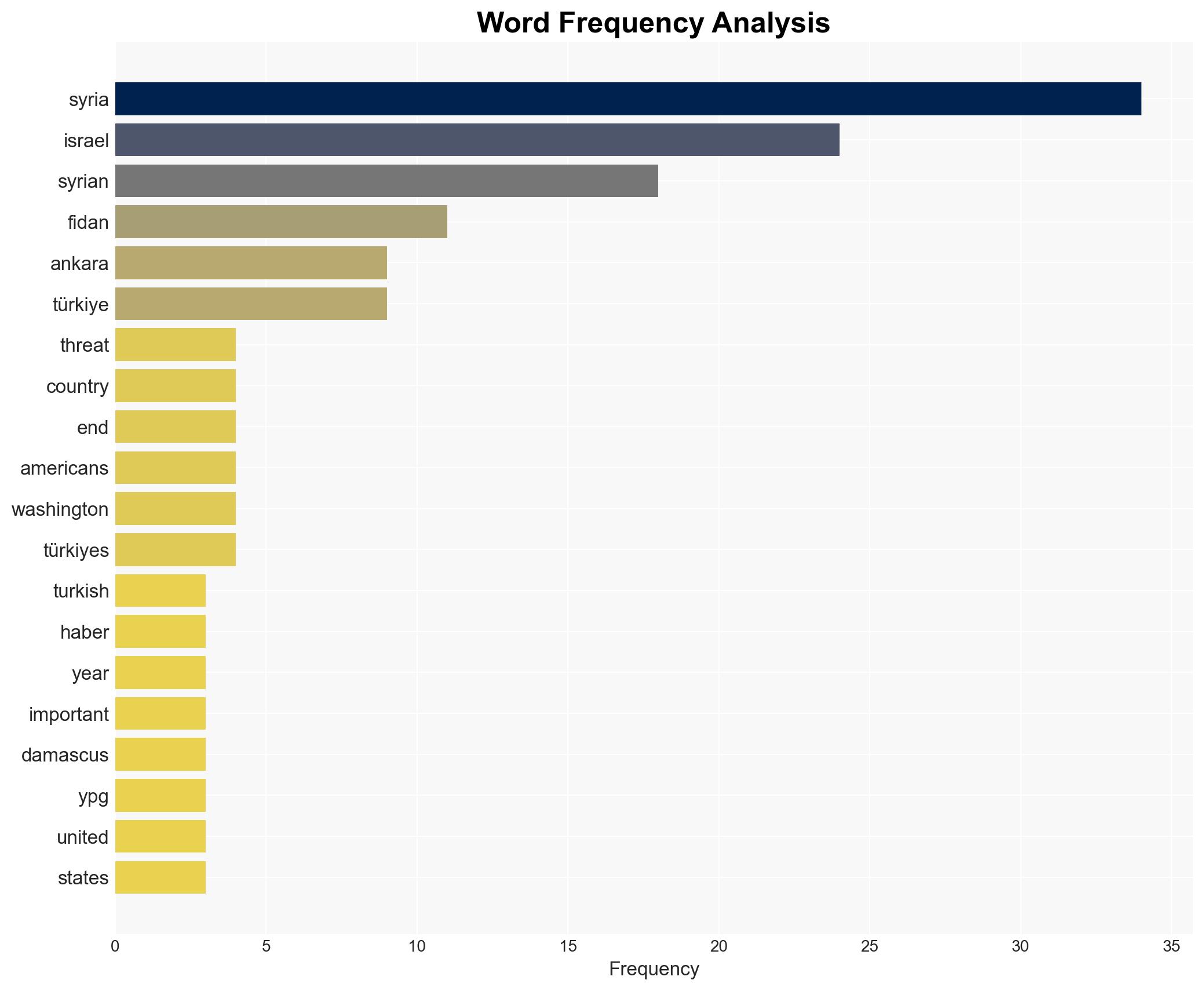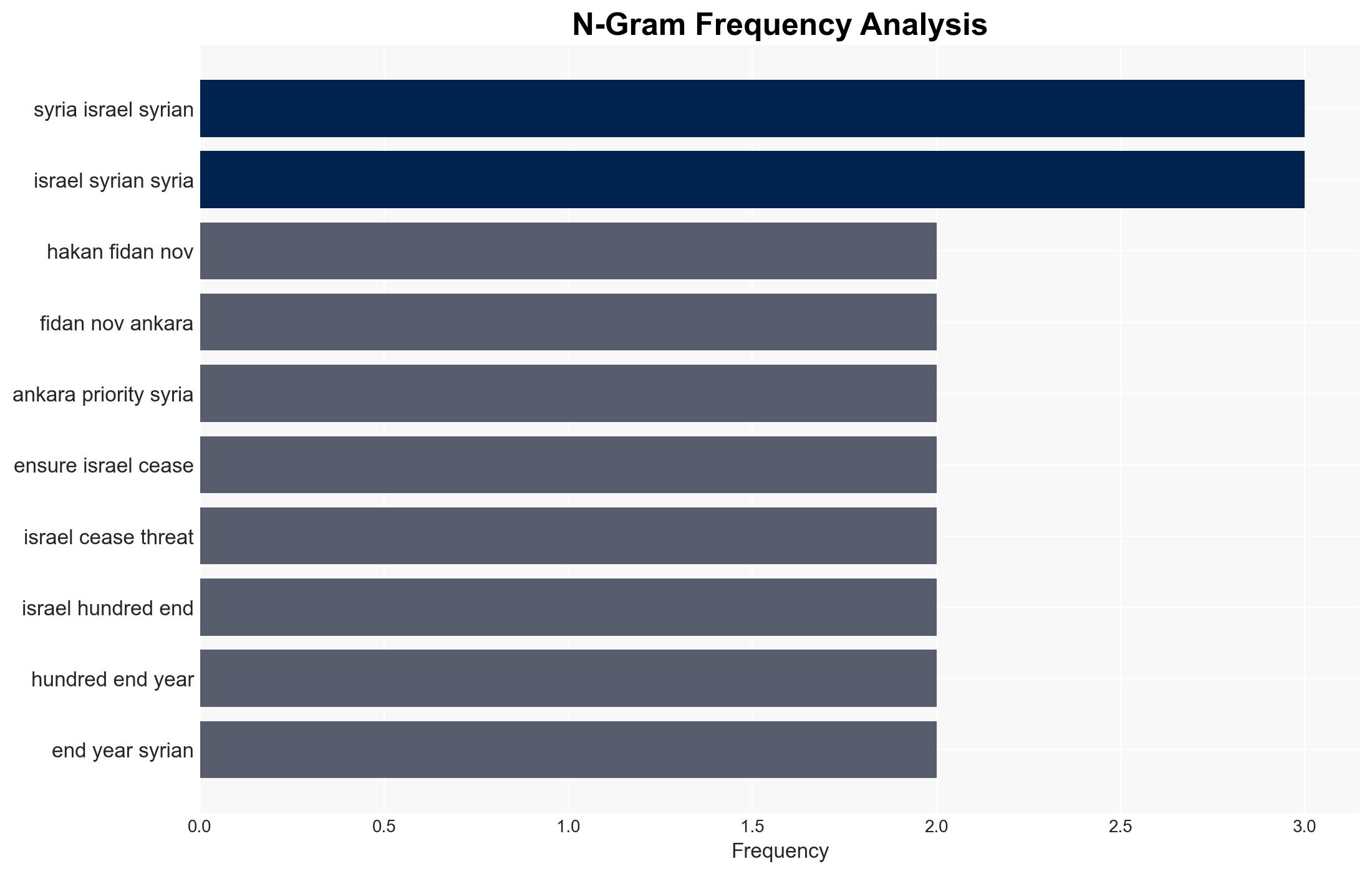US support for stability in Syria extremely important’ Fidan – Hurriyet Daily News
Published on: 2025-11-16
AI-powered OSINT brief from verified open sources. Automated NLP signal extraction with human verification. See our Methodology and Why WorldWideWatchers.
Intelligence Report:
1. BLUF (Bottom Line Up Front)
With a moderate confidence level, it is assessed that the primary strategic goal of Türkiye is to maintain regional stability and influence in Syria by leveraging US support and addressing Israeli threats. The recommended action is for the US to engage in diplomatic efforts to mediate between Türkiye, Israel, and other regional actors to ensure a balanced approach to Syria’s stabilization.
2. Competing Hypotheses
Hypothesis 1: Türkiye’s primary objective is to stabilize Syria by reducing Israeli military actions and integrating Kurdish forces into the Syrian National Army, with US support being crucial for success.
Hypothesis 2: Türkiye’s emphasis on US support and Israeli threats is primarily a strategic maneuver to strengthen its geopolitical influence in Syria and the broader region, rather than a genuine effort to stabilize Syria.
Hypothesis 1 is more likely given Türkiye’s historical role in hosting refugees and its calls for international cooperation, indicating a genuine interest in regional stability. However, geopolitical interests cannot be discounted, making Hypothesis 2 plausible.
3. Key Assumptions and Red Flags
Assumptions: It is assumed that Türkiye’s public statements reflect its true strategic goals and that US involvement will significantly impact the situation in Syria.
Red Flags: The possibility of Türkiye using the situation to justify its military presence in northern Syria and the potential for misrepresenting the threat level posed by Israel to gain international support.
Deception Indicators: Overemphasis on Israeli threats without corresponding evidence of increased military activity could indicate an attempt to manipulate international perceptions.
4. Implications and Strategic Risks
The primary risk is the potential for increased tensions between Türkiye and Israel, which could escalate into broader regional conflict. Additionally, failure to integrate Kurdish forces could lead to internal Syrian conflict, undermining stabilization efforts. Cyber and informational warfare could be employed by regional actors to sway public opinion and international support.
5. Recommendations and Outlook
- Actionable Steps: The US should facilitate dialogue between Türkiye, Israel, and Kurdish representatives to address security concerns and promote integration efforts.
- Best Scenario: Successful mediation leads to decreased Israeli military actions and a cooperative framework for Syrian stabilization.
- Worst Scenario: Escalation of military conflict between Türkiye and Israel, further destabilizing the region.
- Most-likely Scenario: Continued diplomatic efforts with slow progress towards stabilization, with intermittent regional tensions.
6. Key Individuals and Entities
Hakan Fidan (Turkish Foreign Minister), US Government, Israeli Government, Syrian Democratic Forces, Syrian National Army.
7. Thematic Tags
Regional Focus, Regional Focus: Middle East, Syria, Türkiye, Israel
Structured Analytic Techniques Applied
- Causal Layered Analysis (CLA): Analyze events across surface happenings, systems, worldviews, and myths.
- Cross-Impact Simulation: Model ripple effects across neighboring states, conflicts, or economic dependencies.
- Scenario Generation: Explore divergent futures under varying assumptions to identify plausible paths.
Explore more:
Regional Focus Briefs ·
Daily Summary ·
Support us
·





